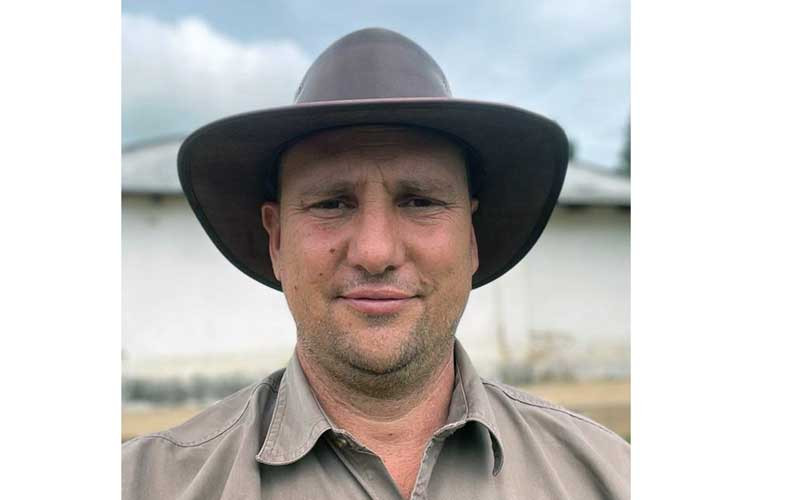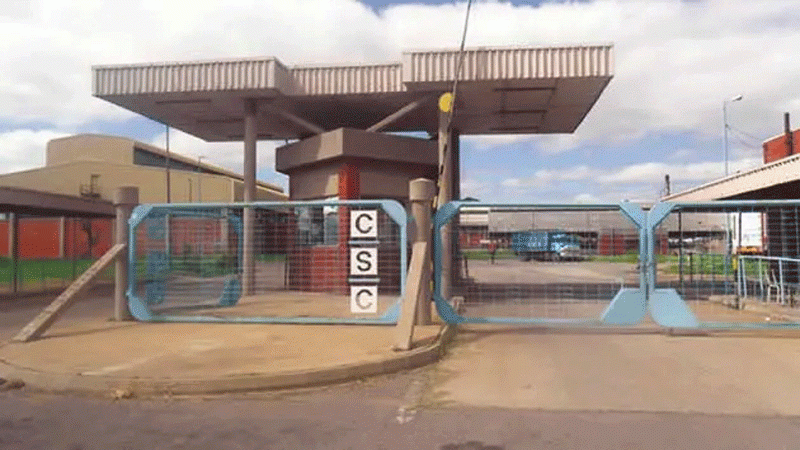
TWO weeks ago, the Commercial Farmers of Zimbabwe (CFU) elected Liam Philp (LP) as its new president, replacing Andrew Pascoe. The election itself was marred by controversy, having been abandoned in December after ‘unconstitutional’ processes.
This week, the new CFU boss agreed to sit down with our senior business reporter Freeman Makopa (FM), where he laid out his game plan for an industry he says is fighting headwinds from multiple fronts. He also gives insights into progress towards payments to white commercial farmers who lost farms under Zimbabwe’s land reform programme. Here is how their discussion turned out.
Fact file: Liam Philp
Philp, born and educated in Zimbabwe, is a highly accomplished and respected figure in the horticultural industry
He has served on the CFU council as the horticulture sector representative since 2019.
He was appointed to the interim board of the Horticulture Development Council (HDC) by Agriculture Deputy Minister Vangelis Haritatos as part of a team tasked to develop the apex body.
The HDC was later entrusted with the implementation of the conventional aspects of The National Horticultural Recovery and Growth Plan.
The HDC was officially launched in 2021 and Liam’s commitment was recognised by the industry in his appointment as Vice Chairman under the leadership of its chairman, Stanley Heri.
- New CFU boss promises to revitalise union
Keep Reading
In this role, he plays a crucial part in steering the council's initiatives, fostering collaboration among stakeholders, and driving the recovery and growth of the horticultural sector.
His expertise and insights contribute to the formulation of policies, tackling challenges, and advancing the collective interests of the horticultural industry at the national level.
On the 10th of January 2024, Liam was elected President of the Commercial Farmers Union. He intends to focus on further enhancing the developing organised agriculture to create an enabling environment where farmers and investors can enjoy carrying out their professions in an economically sustainable manner while contributing significantly to the national economy.
FM: Tell us about yourself. Who is Liam Philp?
LP: I am a middle-aged farmer who was born and bred in Zimbabwe. I have been involved in agriculture my entire career. I am the product of the very first two-year general agriculture course at Blackfordby College (in Mazoe), which started in 1995.
I see myself as a bridge builder and unifier. I have a very broad and detailed understanding of the agricultural landscape, being a farmer, agro-processor and vice-chairman of the Horticultural Development Council. I am an advocate of sustainable agriculture and a very proud Zimbabwean.
FM: Where is your farm located?
LP: I have farming interests in Concession. I am predominantly a horticulture farmer.
FM: As the new president of CFU, what do you hope to achieve?
LP: My personal vision is to work with all stakeholders to create an environment where agriculture can prosper. We need to work together to create an enabling environment where all farmers can perform to the best of their ability. A big part of this is reducing the unnecessary stress that farmers today find themselves under.
FM: Tell us more about these stresses
LP: Agriculture is in a tough space to be in currently. Farmers are facing a plethora of challenges. Farmers are facing the impact of the El Niño weather pattern. The new fiscal policy that was introduced this month has also created its own challenges for value chains of primary producers. Stagnant commodity prices and increasing input cost coupled with very late payments are crippling farmers. The trade cycle for a farmer is typically significantly longer than that of a trader and the impact of the United States dollar cost of borrowing on the farmer of 15% to 20% is prohibitive.
FM: This is only part of many challenges confronting Zimbabwe’s farming sector…
LP: In addition to what I mentioned above, the industry faces an energy crisis. Many farmers had water resources but no electricity to pump the water to establish crops in October and November during the drought. Unfortunately, the price of fuel simply makes it prohibitive to run generators for irrigation of row crops. The margins are simply not there to support this. A relaxation of a portion of duties on fuel for agriculture will go a long way in addressing viability issues.
FM: What are the farmers saying?
LP: There is uncertainty in the agriculture sector. Farmers are uncertain of what they will be paid, when they will be paid and what currency they will be paid in. All of these uncertainties make it very difficult for banks to finance production. Capital is risk adverse. Investing in cluster house construction is far more attractive for bankers than agriculture. We need to address this.
FM: You have also just mentioned problems do to with irrigation
LP: The new cost of irrigation water for commercial farmers is another of numerous pain points for farmers.
FM: Are you happy with the current structure of the CFU. We saw that there were several issues raised during your elections late last year
LP: I would like to see the union restructured for purpose. Re-establishing the commodity associations within the union will be a big win for agriculture. We need to modernise and create the platform for real dialogue and engagement. Working together with government we can find solutions to challenges facing the industry. A positive result will be a surge in commercial agricultural activity, employment creation and ultimately economic stimulation.
FM: The organisation has gone through significant transformation in the past 24 years when Zimbabwe carried out agrarian reforms. How big is the CFU now?
LP: The CFU is a lot smaller than it was in its prime. Most of the younger generation of farmers do not belong to a farmers union. We need to change this by providing a value proposition for the younger farmers and bring them in to participate. There are incredible young leaders in the farming community with much to offer the sector.
FM: How different is the CFU now, compared to what it used to be before the land reform programme?
LP: The biggest difference is that many of the commodity associations under the CFU are no longer active. This was a strength of the union in the past, providing specific focus on key areas of agriculture.
FM: How can these challenges be resolved?
LP: A strong collective desire to achieve, coupled with real and meaningful engagement between farmers’ representatives and government will produce outstanding results. Untaxed red diesel for agricultural use in generators and tractors will be a low hanging fruit and actually essential, in my personal opinion, to encourage farmers to plant wheat.
By putting our heads together as farmers’ representatives and government with a focus to address the uncertainties, we could reduce the risk profile of agriculture, which will encourage investment.
FM: Tell us about the compensation of commercial farmers under the Global Compensation Deed (GCD)? How much has been paid? Are you happy?
LP: I am afraid I don’t have that information at hand. Valcon, the Valuation Consortium, will be best placed to quantify this. What I can tell you is the State was unable to achieve their payment obligations under the GCD. The farmers in general are understandably frustrated with the non-performance on obligations under the GCD.










